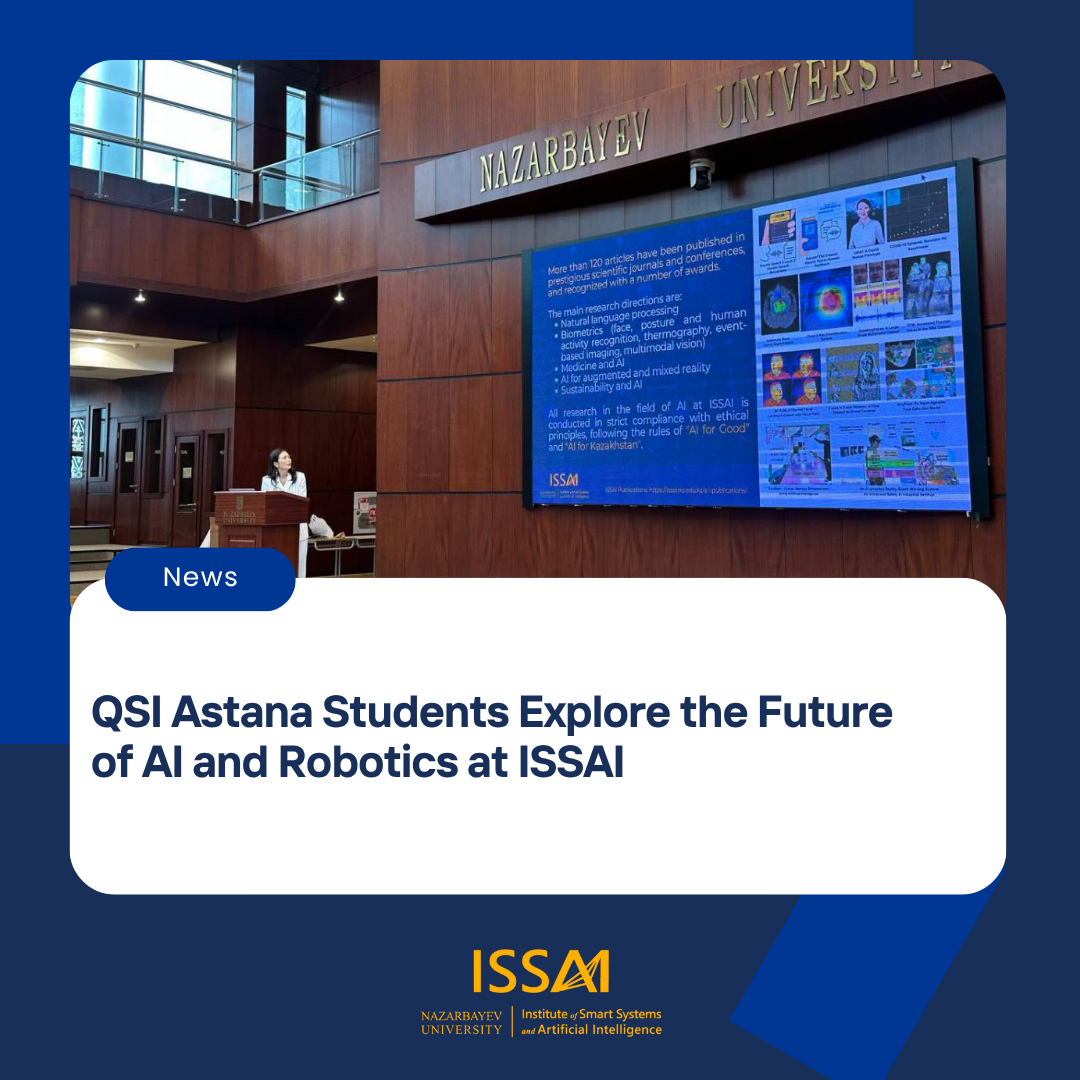Astana, May 28, 2025 — A group of middle and high school students, accompanied by their teachers from QSI International School of Astana, visited the Institute of Smart Systems and Artificial Intelligence (ISSAI) at Nazarbayev University. The visit offered students an exciting opportunity to learn about the latest developments in artificial intelligence, robotics, and cutting-edge research conducted at ISSAI and across the university.
The day began with immersive lab tours, giving students first hand exposure to several of ISSAI’s partner research facilities.
At the Advanced Robotics and Mechatronic Systems (ARMS) Lab, led by Dr. Azamat Yeshmukhametov, research assistants Danil Filimonov and Yersaiyn Bushanov showcased innovative projects in industrial automation. Students explored a tensegrity robotic structure, demonstrating how the balance of tension and compression can lead to lightweight, adaptable robot designs used in challenging industrial environments.
Next, the group visited the Human-Robot Interaction Lab, led by Professor Anara Sandygulova, where they learned about socially impactful applications of robotics and AI. Zholaman Kuangaliyev, a Robotics master’s student at Nazarbayev University, introduced a robot developed to support children with autism spectrum disorder (ASD). Using gestures, facial expressions, audio, and natural language, the system helps engage children in therapeutic and educational activities — showcasing the importance of human-centered AI.
Students also toured Kazakhstan’s only anechoic chamber, a newly constructed, soundproof facility designed for acoustic and electromagnetic experiments. Professor Bakhtiyar Orazbayev guided the demonstration, explaining the chamber’s critical role in precision testing and its contribution to strengthening Kazakhstan’s research infrastructure.
Following the tours, the visit continued with a presentation by Aigerim Sarsenova, Senior External Affairs Manager at ISSAI. She introduced the Institute’s mission, core research areas, and its strategic role in advancing artificial intelligence in Kazakhstan. Aigerim highlighted ISSAI’s flagship projects — SoyleApp, Oylan2, SoyleLive, and Beynele — which focus on AI-powered solutions in translation technologies, education, and multimodal interaction.
After the presentation, ISSAI data scientist Rakhat Meiramov demonstrated the real-time capabilities of ISSAI’s models. Students interacted with MangiSoz — experiencing both text-to-text and speech-to-speech translation — and explored the Oylan model, an advanced AI system that integrates audio, visual, and linguistic data for complex multimodal reasoning. The students asked insightful questions and showed great enthusiasm for the technologies on display.
As part of the session, Aigerim also introduced the ISSAI Summer Research Program (SRP) — an annual initiative that provides high school and university students from Kazakhstan and abroad with hands-on AI research experience. This year alone, ISSAI received over 600 applications, reflecting the growing interest in the program.
The QSI students expressed strong interest in participating in SRP. In response, ISSAI plans to expand such opportunities year-round, offering more young talents the chance to engage with cutting-edge AI research and innovation.
The visit sparked curiosity, inspiration, and meaningful dialogue, marking another step in ISSAI’s mission to nurture the next generation of innovators and strengthen educational collaboration throughout Kazakhstan.



